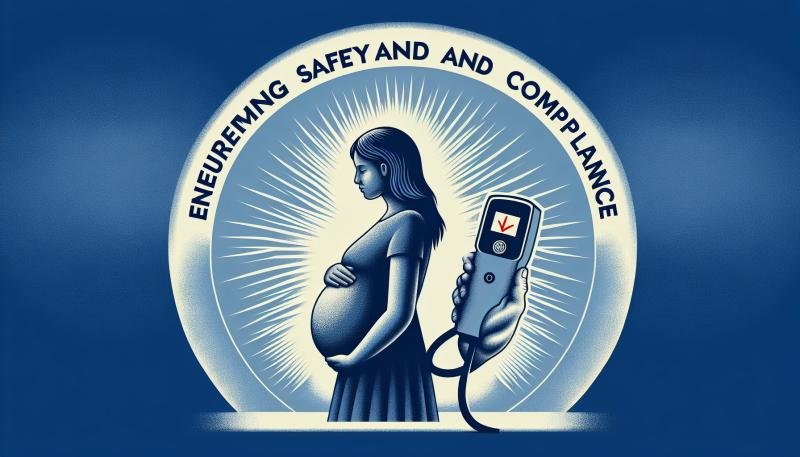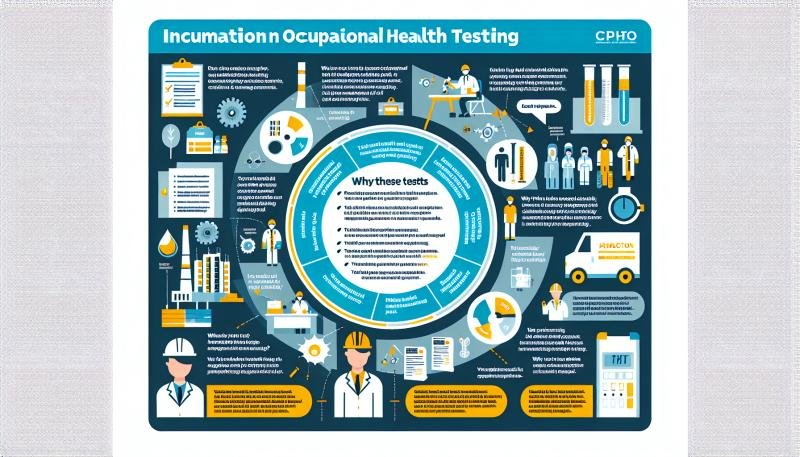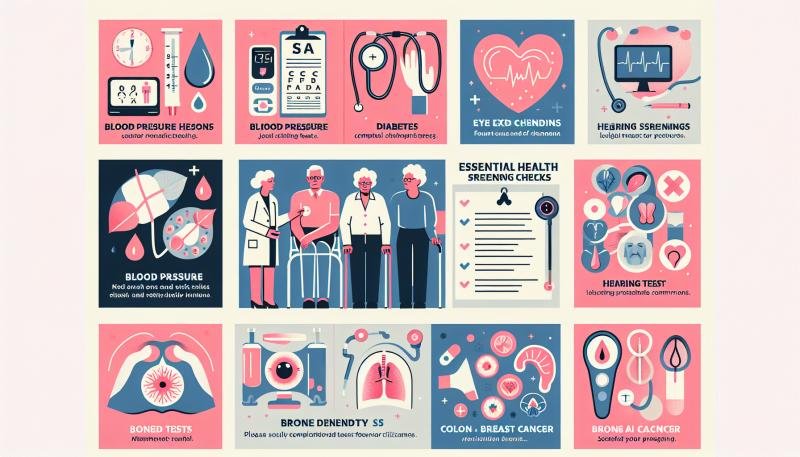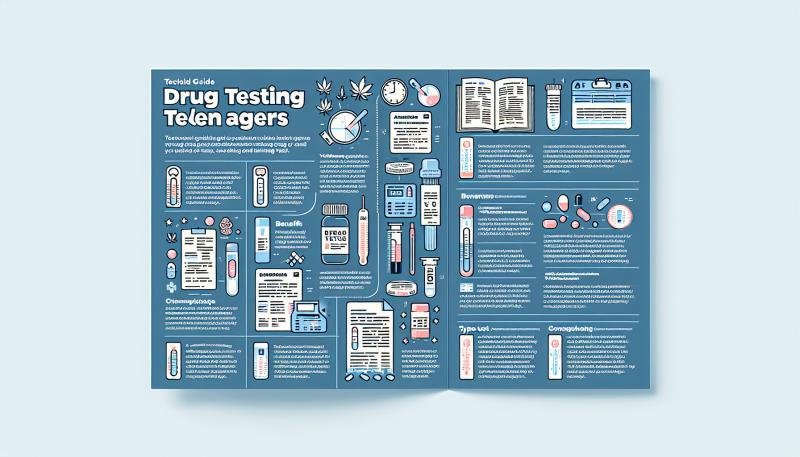
Specific Populations Articles
Alcohol Testing for Pregnant Women: Ensuring Safety and Compliance
Alcohol consumption during pregnancy has been widely studied due to...
Read MoreOccupational Health Testing Explained: What Consumers Should Know
Occupational health testing is a vital component in safeguarding the...
Read MoreLab Testing for Seniors: Essential Health Checks to Consider
The importance of regular health screenings increases as we age....
Read MoreDNA Testing for Ancestry vs. Health: Making Informed Choices
In today’s rapidly evolving world of molecular biology, DNA testing...
Read MoreNavigating Alcohol Testing: What You Need to Know for Personal Use
In recent years, alcohol testing has become increasingly accessible and...
Read MoreUnderstanding Drug Testing Options for Teens: A Comprehensive Guide
As concerns about substance use among teenagers continue to rise,...
Read MoreTesting minors for drugs or alcohol often involves specific legal and ethical considerations. Below are some frequently asked questions regarding this topic:
1. Is Parental Consent Required?
Generally, parental consent is required when testing minors for drugs or alcohol, especially in non-emergency situations. This ensures that parents are informed and can support the child through potential implications of the testing.
2. Are Schools Allowed to Test Minors?
Many schools have policies that permit drug and alcohol testing for students, often contingent on participation in extracurricular activities. Understanding school policy and ensuring that they meet both state laws and privacy regulations is essential.
3. Can Minors Refuse Testing?
The ability for minors to refuse testing usually depends on the setting and circumstances, such as school policy or a court order. Parents or guardians typically have the deciding authority regarding consent.
4. What are the Implications of Test Results?
Test results can have serious implications, including impacting school records, legal consequences, or requiring involvement from social services. It’s vital for parents and minors to understand these risks.
Ultimately, decisions surrounding drug or alcohol testing for minors should be made carefully, with due consideration of the legal requirements and potential consequences. Consulting legal or medical professionals for guidance is advisable when navigating these situations.
Understanding whether parental consent is required for testing a teenager can depend on various factors, including the type of test and local laws. Here are some general guidelines to consider:
1. Type of Test
- Medical Tests: Many medical tests, especially those involving sensitive health information, require parental consent if the child is under 18. These can include blood tests, diagnostic imaging, and others.
- Educational Assessments: Schools may have different policies regarding consent for educational evaluations. It�s best to consult with your local school district for specific requirements.
- Psychological Evaluations: Psychological tests often require parental consent, particularly if they are conducted by a healthcare professional.
2. Local Laws
Laws regarding parental consent vary by region. In some areas, minors have rights to consent to certain types of medical care without parental approval, particularly those related to reproductive health, mental health services, and substance abuse treatment.
3. Consent Form
When consent is required, parents or legal guardians are typically asked to sign a consent form. This document outlines the specifics of the test and any potential risks involved.
Conclusion
It�s important to research and understand the rules applicable to your situation. When in doubt, consult with healthcare professionals or legal advisors to ensure compliance with all relevant laws and policies
Yes, there are tests specifically designed to assess the health and cognitive abilities of seniors. These tests cater to the unique needs and challenges that come with aging. Here is an overview:
Types of Tests for Seniors
Cognitive Assessments
- Mini-Mental State Examination (MMSE): A widely used test to help diagnose dementia and assess cognitive function. It includes simple questions and tasks.
- Montreal Cognitive Assessment (MoCA): More comprehensive than the MMSE, this test evaluates various cognitive skills including memory, attention, and problem-solving.
Physical Health Tests
- Timed Up and Go Test (TUG): Measures mobility and balance. It assesses how quickly a person can rise from a chair, walk a short distance, turn, and sit back down.
- 30-Second Chair Stand Test: Evaluates lower body strength, crucial for maintaining balance and preventing falls.
Hearing and Vision Tests
- Audiometric Tests: Used to assess hearing ability, usually conducted by an audiologist.
- Visual Acuity Tests: Checks clarity or sharpness of vision, important for reading and recognizing objects and faces.
It is important for seniors to undergo these tests as part of regular health check-ups. These assessments can help in early detection of potential issues and enable timely interventions. Consulting healthcare providers for personalized recommendations is always a good practice
Undergoing medical treatment does not automatically preclude someone from taking a drug test. However, there are several important considerations to keep in mind:
Considerations for Taking a Drug Test While Under Medical Treatment:
- Notify the Test Administrator:
- Always inform the person overseeing the test about your current medical treatments and any prescribed medications.
- Providing this information upfront can help in accurately interpreting test results.
- Understand Potential Interference:
- Certain medications could potentially interfere with drug test results, leading to false positives or negatives.
- Discuss with your healthcare provider if any medications could affect the test outcomes.
- Documentation and Proof:
- It’s advisable to have documentation such as a prescription or a note from your healthcare provider.
- This documentation can serve as proof and offer clarification in case of unexpected test results.
- Alternative Testing Options:
- If a standard drug test poses issues, inquire about alternative testing methods that may be less affected by your treatment.
In summary, taking a drug test while undergoing medical treatment is feasible, but it requires transparency and communication to ensure accurate and fair results.
Alcohol Testing for Pregnant Women: Ensuring Safety and Compliance
Alcohol consumption during pregnancy has been widely studied due to...
Read MoreOccupational Health Testing Explained: What Consumers Should Know
Occupational health testing is a vital component in safeguarding the...
Read MoreLab Testing for Seniors: Essential Health Checks to Consider
The importance of regular health screenings increases as we age....
Read MoreDNA Testing for Ancestry vs. Health: Making Informed Choices
In today’s rapidly evolving world of molecular biology, DNA testing...
Read MoreNavigating Alcohol Testing: What You Need to Know for Personal Use
In recent years, alcohol testing has become increasingly accessible and...
Read MoreUnderstanding Drug Testing Options for Teens: A Comprehensive Guide
As concerns about substance use among teenagers continue to rise,...
Read MoreTesting minors for drugs or alcohol often involves specific legal and ethical considerations. Below are some frequently asked questions regarding this topic:
1. Is Parental Consent Required?
Generally, parental consent is required when testing minors for drugs or alcohol, especially in non-emergency situations. This ensures that parents are informed and can support the child through potential implications of the testing.
2. Are Schools Allowed to Test Minors?
Many schools have policies that permit drug and alcohol testing for students, often contingent on participation in extracurricular activities. Understanding school policy and ensuring that they meet both state laws and privacy regulations is essential.
3. Can Minors Refuse Testing?
The ability for minors to refuse testing usually depends on the setting and circumstances, such as school policy or a court order. Parents or guardians typically have the deciding authority regarding consent.
4. What are the Implications of Test Results?
Test results can have serious implications, including impacting school records, legal consequences, or requiring involvement from social services. It’s vital for parents and minors to understand these risks.
Ultimately, decisions surrounding drug or alcohol testing for minors should be made carefully, with due consideration of the legal requirements and potential consequences. Consulting legal or medical professionals for guidance is advisable when navigating these situations.
Understanding whether parental consent is required for testing a teenager can depend on various factors, including the type of test and local laws. Here are some general guidelines to consider:
1. Type of Test
- Medical Tests: Many medical tests, especially those involving sensitive health information, require parental consent if the child is under 18. These can include blood tests, diagnostic imaging, and others.
- Educational Assessments: Schools may have different policies regarding consent for educational evaluations. It�s best to consult with your local school district for specific requirements.
- Psychological Evaluations: Psychological tests often require parental consent, particularly if they are conducted by a healthcare professional.
2. Local Laws
Laws regarding parental consent vary by region. In some areas, minors have rights to consent to certain types of medical care without parental approval, particularly those related to reproductive health, mental health services, and substance abuse treatment.
3. Consent Form
When consent is required, parents or legal guardians are typically asked to sign a consent form. This document outlines the specifics of the test and any potential risks involved.
Conclusion
It�s important to research and understand the rules applicable to your situation. When in doubt, consult with healthcare professionals or legal advisors to ensure compliance with all relevant laws and policies
Yes, there are tests specifically designed to assess the health and cognitive abilities of seniors. These tests cater to the unique needs and challenges that come with aging. Here is an overview:
Types of Tests for Seniors
Cognitive Assessments
- Mini-Mental State Examination (MMSE): A widely used test to help diagnose dementia and assess cognitive function. It includes simple questions and tasks.
- Montreal Cognitive Assessment (MoCA): More comprehensive than the MMSE, this test evaluates various cognitive skills including memory, attention, and problem-solving.
Physical Health Tests
- Timed Up and Go Test (TUG): Measures mobility and balance. It assesses how quickly a person can rise from a chair, walk a short distance, turn, and sit back down.
- 30-Second Chair Stand Test: Evaluates lower body strength, crucial for maintaining balance and preventing falls.
Hearing and Vision Tests
- Audiometric Tests: Used to assess hearing ability, usually conducted by an audiologist.
- Visual Acuity Tests: Checks clarity or sharpness of vision, important for reading and recognizing objects and faces.
It is important for seniors to undergo these tests as part of regular health check-ups. These assessments can help in early detection of potential issues and enable timely interventions. Consulting healthcare providers for personalized recommendations is always a good practice
Undergoing medical treatment does not automatically preclude someone from taking a drug test. However, there are several important considerations to keep in mind:
Considerations for Taking a Drug Test While Under Medical Treatment:
- Notify the Test Administrator:
- Always inform the person overseeing the test about your current medical treatments and any prescribed medications.
- Providing this information upfront can help in accurately interpreting test results.
- Understand Potential Interference:
- Certain medications could potentially interfere with drug test results, leading to false positives or negatives.
- Discuss with your healthcare provider if any medications could affect the test outcomes.
- Documentation and Proof:
- It’s advisable to have documentation such as a prescription or a note from your healthcare provider.
- This documentation can serve as proof and offer clarification in case of unexpected test results.
- Alternative Testing Options:
- If a standard drug test poses issues, inquire about alternative testing methods that may be less affected by your treatment.
In summary, taking a drug test while undergoing medical treatment is feasible, but it requires transparency and communication to ensure accurate and fair results.






